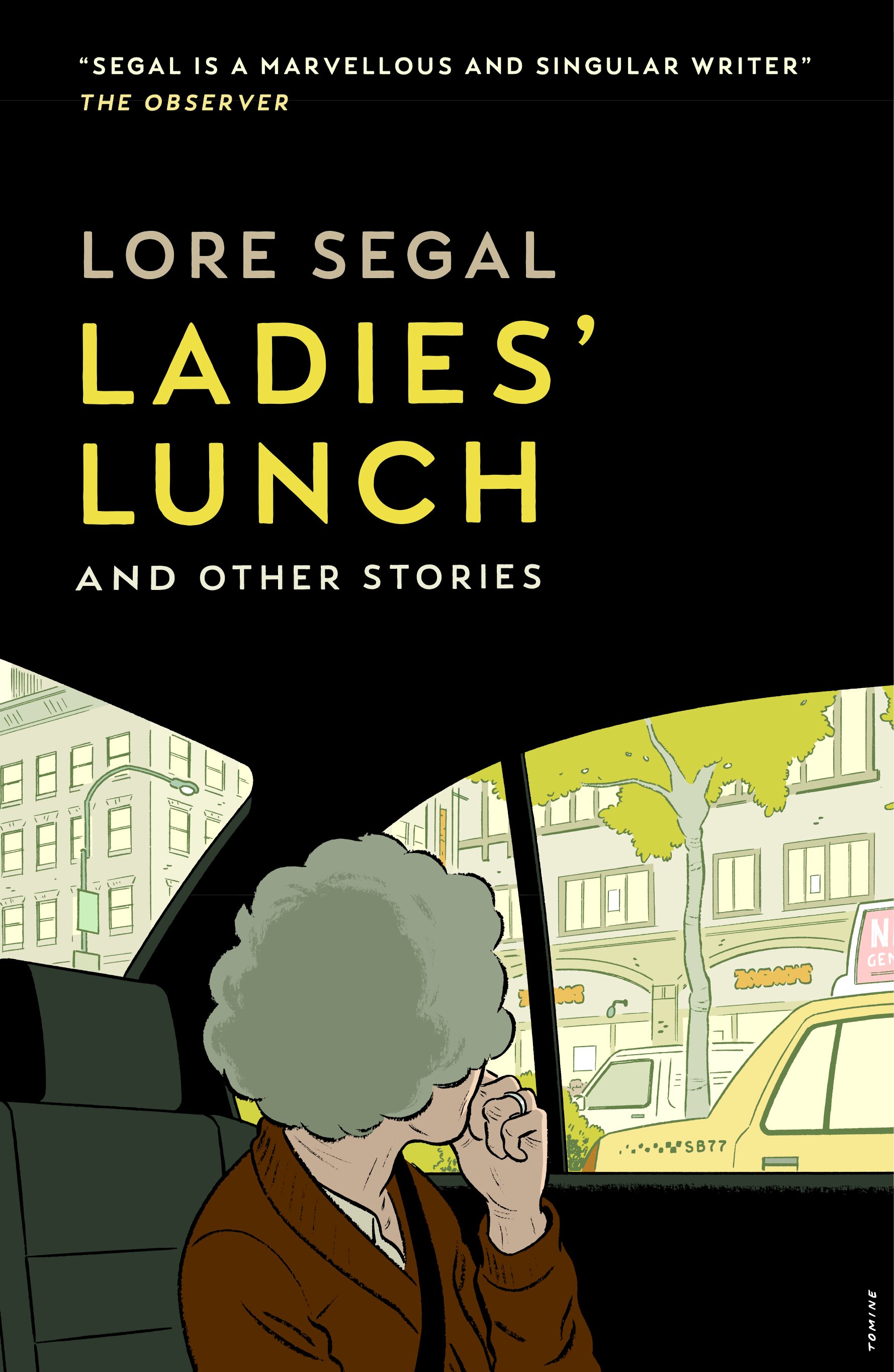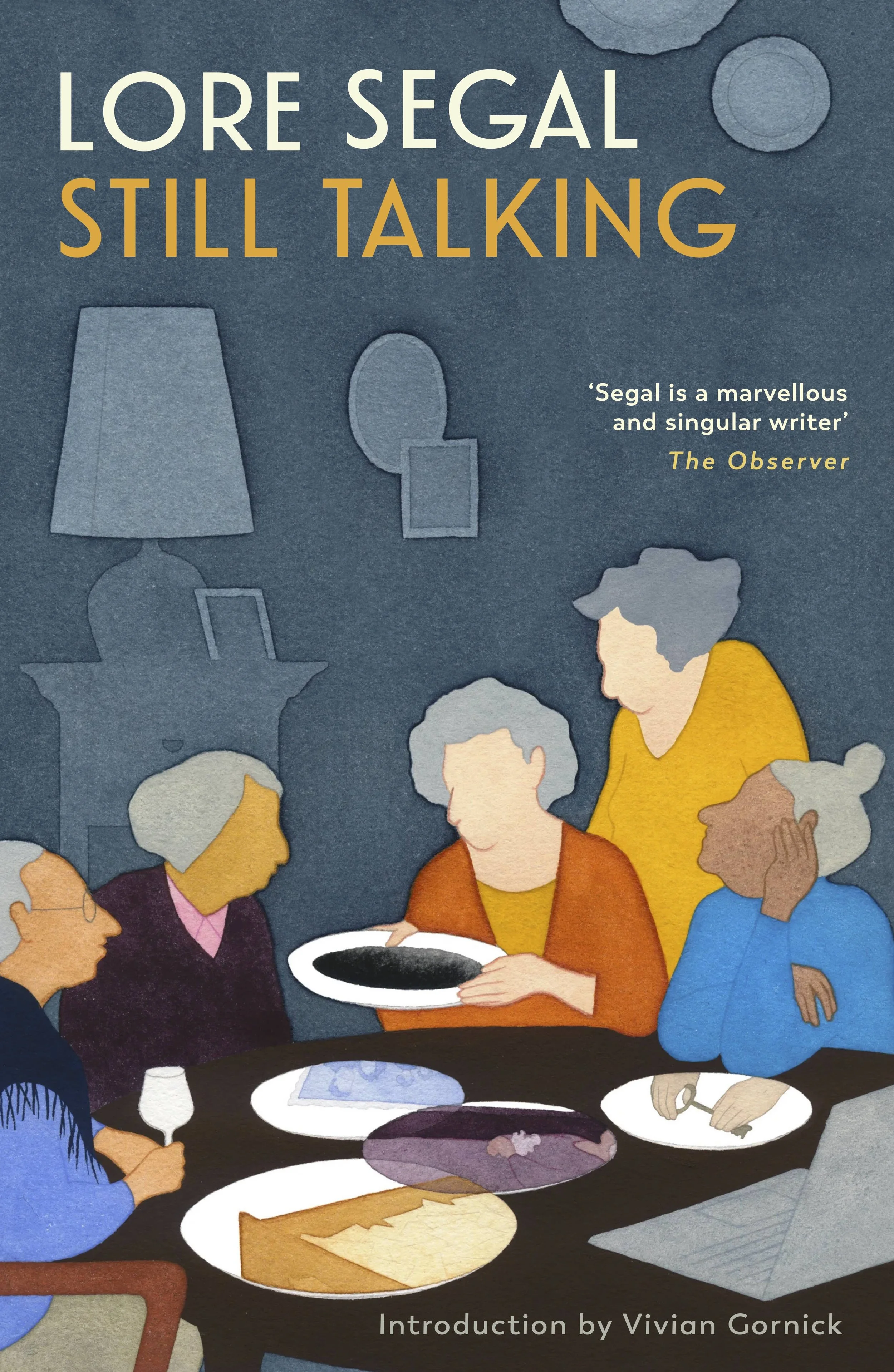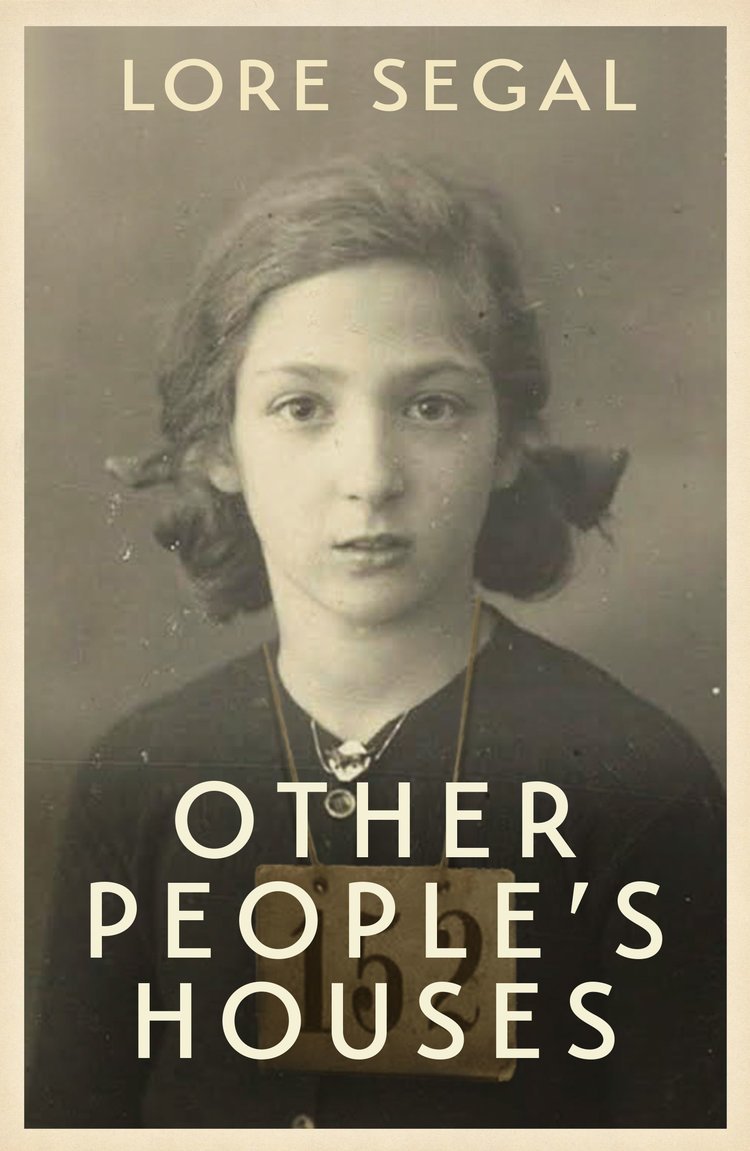fiction by lore segal
Lore Segal (1928-2024) was born in Vienna in 1928 and escaped to England age ten on the Kindertransport. She moved to the USA after the war and has been writing stories for the New Yorker since 1958. Last year, aged 95, she was elected to the US Academy of Arts and Letters. Lore died on 7 October 2024. Here is a link to her obituary by Penelope Green in The New York Times. The previous day, she had been profiled by Matthew Shaer in the NYT magazine (A Master Storyteller, at the End of Her Story).
Sort of Books have republished Lore Segal’s 1964 classic novel Other People’s Houses about her experience of arriving in Britain as a child refugee (2018); An Absence of Cousins (2024, first published in 2007 under the title Shakespeare’s Kitchen); and her highly acclaimed 1985 novel which she described as ‘her favourite child’, Her First American (2025). The third of her five novels, Her First American took eighteen years to complete. It draws on her five-year relationship with the Black American sociologist Horace Cayton Jr, co-author of The Black Metropolis. It won an American Academy Award.
SORT OF REFLECTIONS ON lore segal
7 October 2024
Lore Segal (born in Vienna in 1928), the author of widely acclaimed and prizewinning short stories, novels, children’s books and translations has died this morning, aged 96yrs.
Kirkus dubbed her a ‘monumental writer’ while the New York Times stated that ‘she has quietly produced some of the best fiction in American literature’.
Natania Jansz of Sort of Books first met Lore Segal six years ago, after Sort Of Books re-issued her 1964 novel, Other People’s Houses, an autofiction based on her experiences as a ten year-old Kindertransport refugee, fleeing Nazi persecution in Vienna. Last year Sort of Books published her novella Ladies’ Lunch and other stories (2023) and, at the end of July, re-issued her 2007 Pulitzer nominated novel, Shakespeare’s Kitchen, in a new edition, revised by Lore Segal, under the title An Absence of Cousins.
Natania Jansz says:
Lore Segal was an extraordinary writer. You could sense on every page the workings of a uniquely sharp, yet compassionate, mind, absolutely in command of her craft. She was also an extraordinary person.
A few months ago, zooming from her Upper West Side apartment, she confided that she was rapidly losing her sight. To allay my utter sadness, she offered this thought. She had emigrated before in her life and not by choice, yet each time had found this interesting … and now she was emigrating again.
For Lore, ‘interesting’ was a special word, invariably meaning an experience that could be transformed into a story. Lore had an exceptional ability to find life ‘interesting’; to spin its accidents, griefs, quandaries into sentences that on the surface seemed mildly ironic, quirky even, yet which nailed devastating truths. She did this with astonishing wit and candour.
In her autobiographical novel, Other People’s Houses, she recounts being placed by her parents on one of the first of Vienna’s Kindertransports, a train commissioned in 1938 to whisk Jewish children away from Nazi persecution to foster homes in England. She notices the hectic flush behind her mother’s determined smile but instead fixes her mind on the adventure ahead. She was going to England! Grief could wait. Though only ten years old, she was tasked to write on her arrival – to anyone who might sponsor her parents to leave Austria. Miraculously, she achieved this. A letter found its way to a refugee committee and visas (as ‘domestic servants’) followed.
Lore stayed on in England after the war, studying at university in London, before emigrating, with her mother, to New York, by way of Dominican Republic. There, she found work teaching, and in 1961 had her first Kindertransport stories (which she later turned into Other People’s Houses) published in the New Yorker. She would continue to be published by the magazine for six decades. And she would live in the same apartment, too: ‘I moved in the day of Kennedy’s funeral’, she would tell visitors, who might also notice, on their way in a drawing of Lore ‘as a wild thing’ by her friend Maurice Sendak.
Writing was a sustaining habit for Lore. She would ‘show up’ at her desk from 8am to 1pm, to write, edit and revise her work – stories, novels, children’s books and translations from German – while raising two children, and teaching creative writing. The stories would find a home in The New Yorker (with a scattering in The Paris Review and other journals) and formed the kernels of her five novels. Her own favourite novel – which her former New Yorker editor, Bob Gottlieb, published at Knopf – was Her First American, which won an Academy Award in 1985. Like much of Lore’s work, it had strong autobiographical elements, being based on her relationship, as a young Jewish immigrant to New York, with the Black American sociologist, Horace Cayton Jr.
And she saw no reason to let age or frailty disrupt her writing. In fact, they offered her a wealth of ‘interesting’ new material. These were the stories that formed her acclaimed final collection, Ladies’ Lunch, about a group of elderly friends who meet to muse on, and laugh at, the enigmas and affronts of ageing. The first of these appeared (in the New Yorker, of course) when Lore turned ninety, and she kept writing them into her final months. Sort Of helped her structure the collection in 2023 – editing sessions with Lore over zoom was a career highlight – followed by Melville House Publishing in New York. At age 95, Lore was thrilled to find the book chosen by Barnes & Noble as a book of the month and splashed over storefront windows across Manhattan. She was also inducted into the US Academy of Arts and Letters (‘They took their time’ she commented).
Even then, the stories did not stop. In June this year, as Lore turned 96, The New Yorker published a new Ladies Lunch story, ‘Beyond Imagining’. The group of old friends has become diminished by illness, forgetfulness and death and meet this head on, agreeing ‘without the need for discussion that they were not going to pass, pass away, and under no circumstances, on. They were going to die.’
As always, Lore was using stories to pave the way. When she wrote, in the calm, unadorned, truth telling way that she has, to inform us that she was no longer able to eat and drink, we steadied ourselves for our next zoom meeting, and the sadness of farewells.
We were wrong. While receiving hospice care at home, surrounded by her loving family, Lore was busy milling unpublished stories and edits in her mind. She had four short pieces she wished to share with us.
She was finding it interesting.
Natania Jansz and Mark Ellingham







